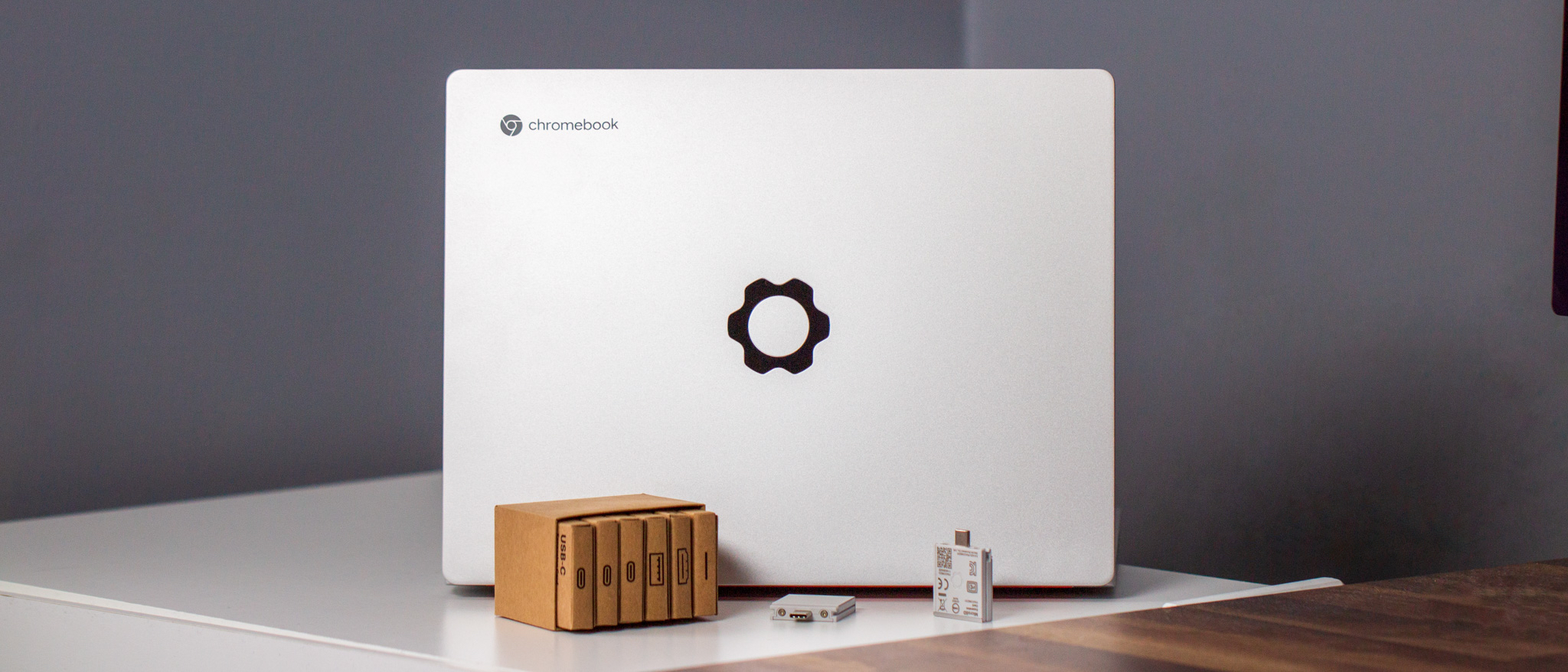Android Central Verdict
At its core, the Framework Laptop Chromebook Edition is a simply wonderful Chromebook from its excellent performance to its sturdy and lightweight design. But the ability to swap out different modules, in addition to providing an easy upgrade path and performing repairs on your own help this Chromebook stand above the rest.
Pros
- +
The first truly modular Chromebook
- +
Great performance
- +
Modules can easily be swapped
- +
Framework offers additional component upgrades
Cons
- -
No touch screen available
- -
Framework's fingerprint scanner module is not compatible
- -
Expensive
- -
Only one mainboard is currently available
Why you can trust Android Central
Over the course of the last year, we've seen plenty of familiar Chromebooks hit the market. But 2022 has also seen the release of a few of the most interesting Chromebooks, along with quite an impressive leap in what ChromeOS has to offer.
I would be lying if I didn't say that many Chromebooks just leave me feeling uninspired, even if they are powered by the latest Intel, AMD, or even ARM processors. But there are two Chromebooks that have stuck out more than the others, and you might be able to guess that the first is the HP Elite Dragonfly Chromebook.
The second is one that I didn't expect to see, especially after much of my focus was on hoping for Google to release a new Pixelbook before the year concluded. What we got instead was something completely unexpected, following the announcement of the Framework Laptop Chromebook Edition.
Framework Laptop Chromebook Edition: Price and availability
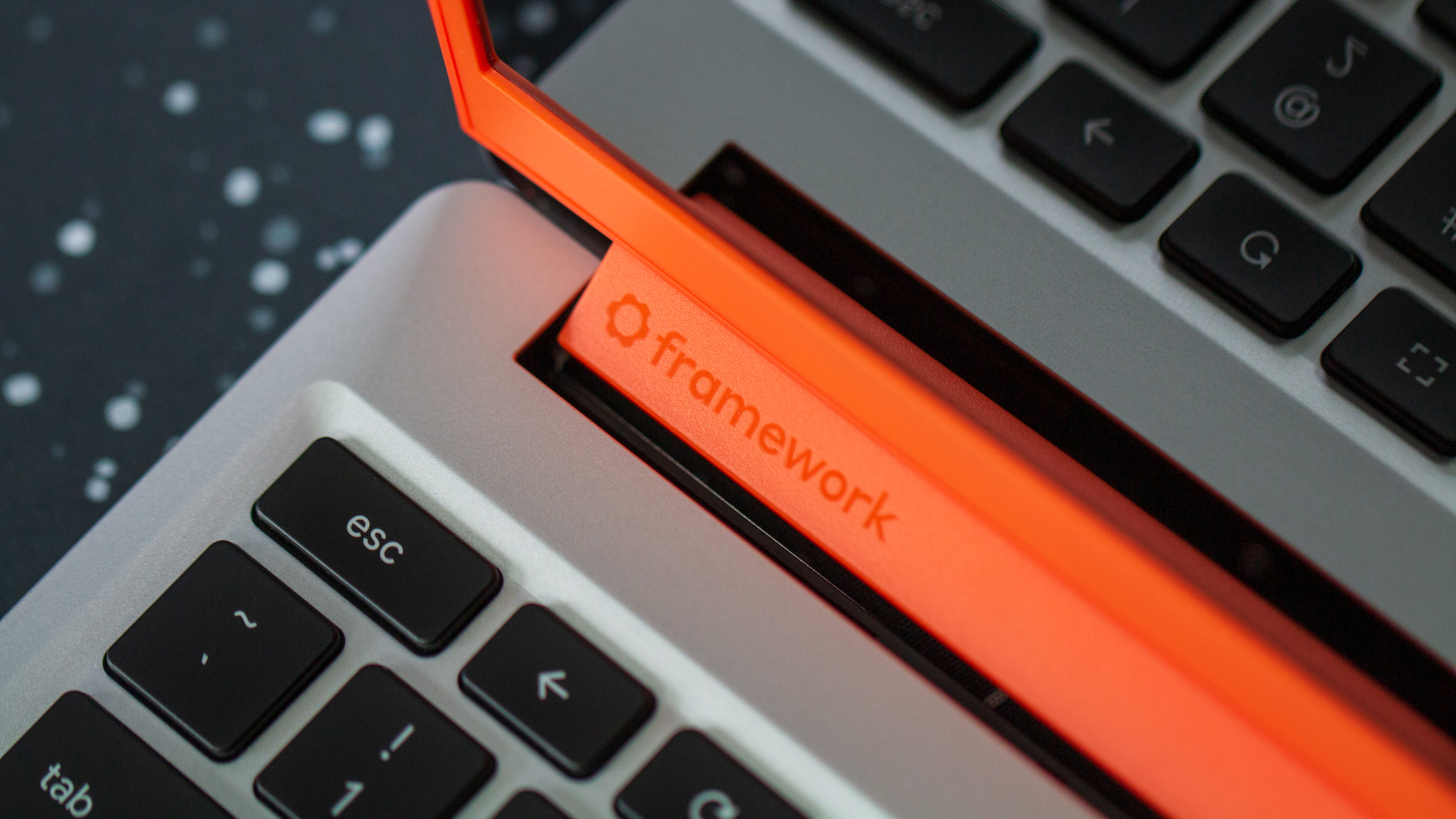
The Framework Laptop Chromebook Edition was announced in September 2022, with a starting price of $999 for the base configuration. This includes the Intel Core i5-1240P, 8GB of RAM, 256GB of storage, and four expansion cards. At the time of this writing, this is the only configuration available directly from Framework, but you can purchase RAM and storage upgrades before checking out.
| Category | Framework Laptop Chromebook Edition |
|---|---|
| Display | 13.5-inches (3:2), 2256 x 1504, 400 nits |
| Processor | 12th Gen Intel Core i5-1240P |
| Graphics | Intel Iris Xe |
| RAM | 8GB DDR4-3200 (Upgradable up to 64GB) |
| Storage | 256GB NVMe (Upgradable up to 1TB) |
| Connectivity | Wi-Fi 6E, Bluetooth 5.2 |
| Expansion cards (ports) | USB-A, USB-C, DisplayPort, MicroSD, HDMI, Ethernet |
| Battery | 55Wh (80% capacity after 1000 cycles) |
| Audio | 2 x 2W speakers (80dB), 3.5mm audio combo jack |
| Camera | 1080p (60fps) w/ privacy switch |
| Dimensions | 296.63 x 228.98 x 15.85mm |
| Weight | 2.86 pounds |
| AUE date | June 2030 |
Framework Laptop Chromebook Edition: Build and design
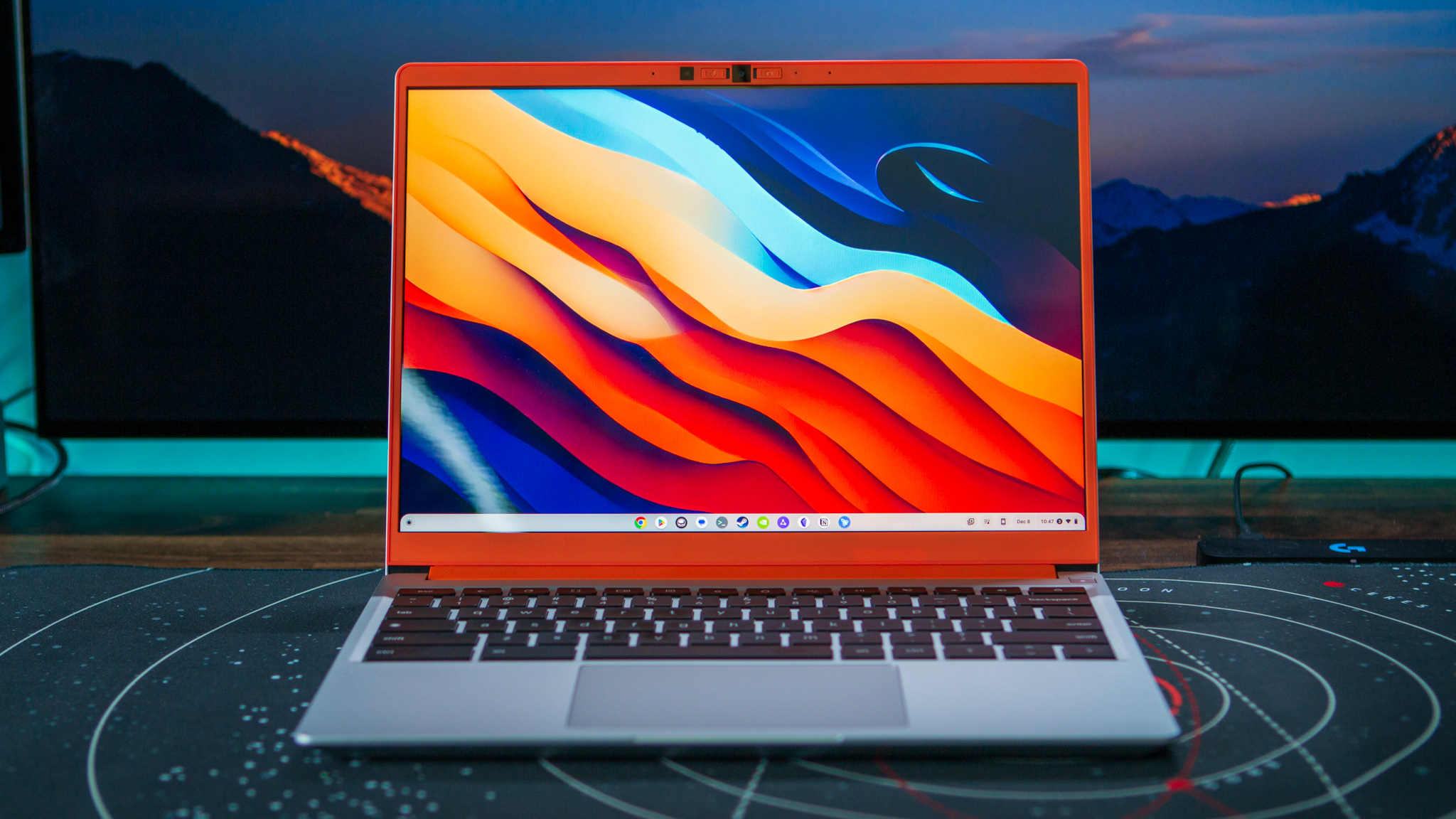
Out of the box, there isn't much to write home about with the Framework. You won't find a fancy design or anything of the sort. Instead, it's available in just Silver, complete with the company's logo in the middle of the top lid, along with Google's Chromebook logo in the top left corner.
You'll also notice that there is only one "port" to speak of, as you'll need to get acclimated to the modularity of this Chromebook pretty quickly. There are a total of four different interchangeable ports, which can be configured when you go through the checkout process. While the $999 price includes four of these modules, Framework "suggests" that you get at least one USB-C card so that you can actually charge up the battery.
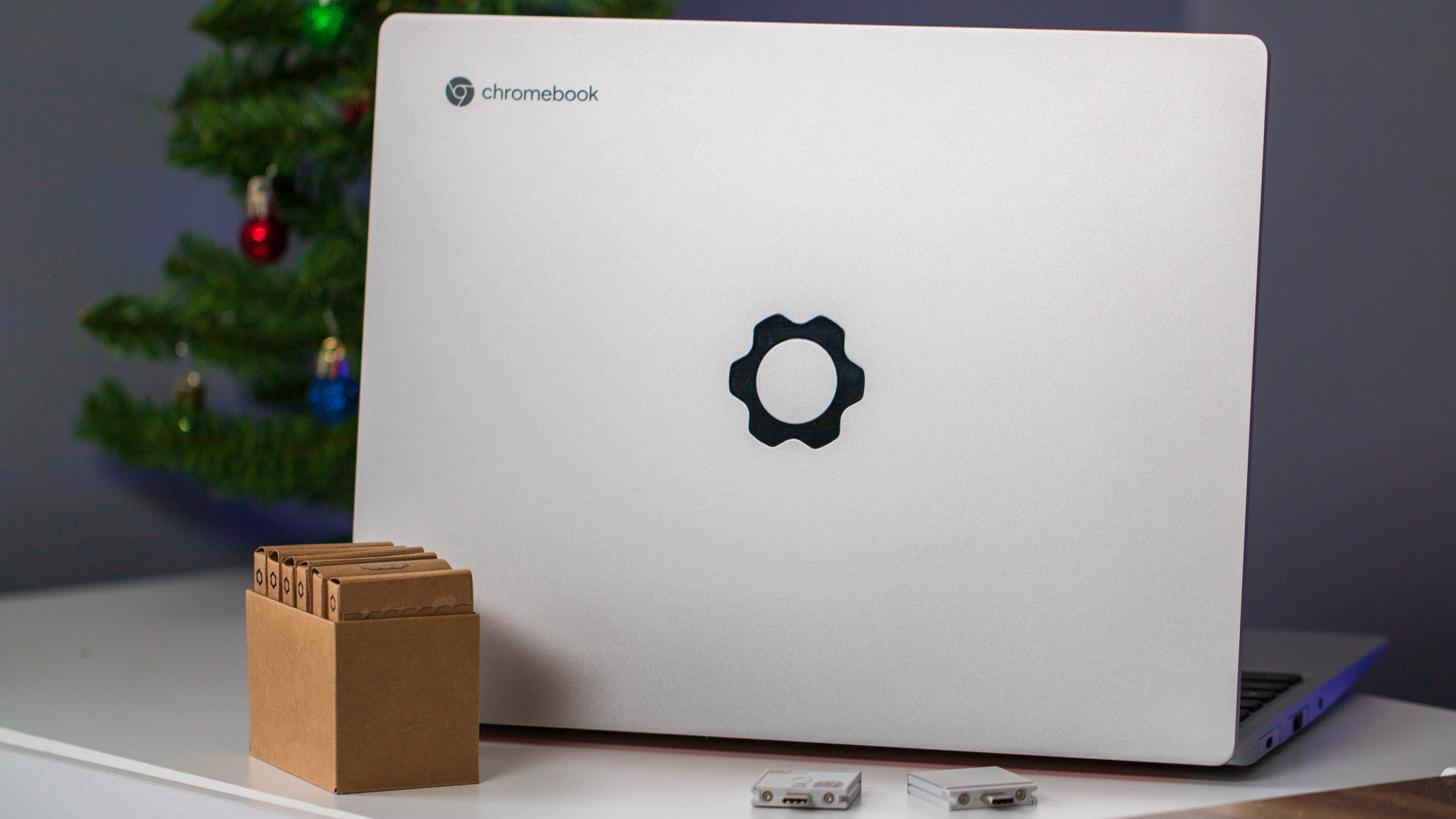
Opening the lid is quite easy, as Framework has done a great job at providing one-finger-lift, and then you're greeted with a 13.5-inch display, complete with a standard keyboard, trackpad, and power button in the top right corner of the keyboard deck.
This brings us to one of our first detractors of the Framework, as you won't find a touchscreen display. And as you probably have surmised by now, this Chromebook offers a traditional laptop design, meaning that it won't take on some of the best 2-in-1 or convertible Chromebooks out there.
That being said, Framework is using a 13.5-inch display with a 2256 x 1504 resolution, complete with a 3:2 aspect ratio. This continues to be my favorite aspect ratio for productivity, as I practically always work with two windows snapped side-by-side. And while Framework currently doesn't offer any alternative display options, we're hoping that will change in the near future.
Another surprising omission here is that despite the Windows and Linux versions of the Framework including a fingerprint scanner, you won't find that on the Chromebook Edition. As is the case with most of our qualms with this device, we wouldn't be surprised if Framework makes this available in the future.
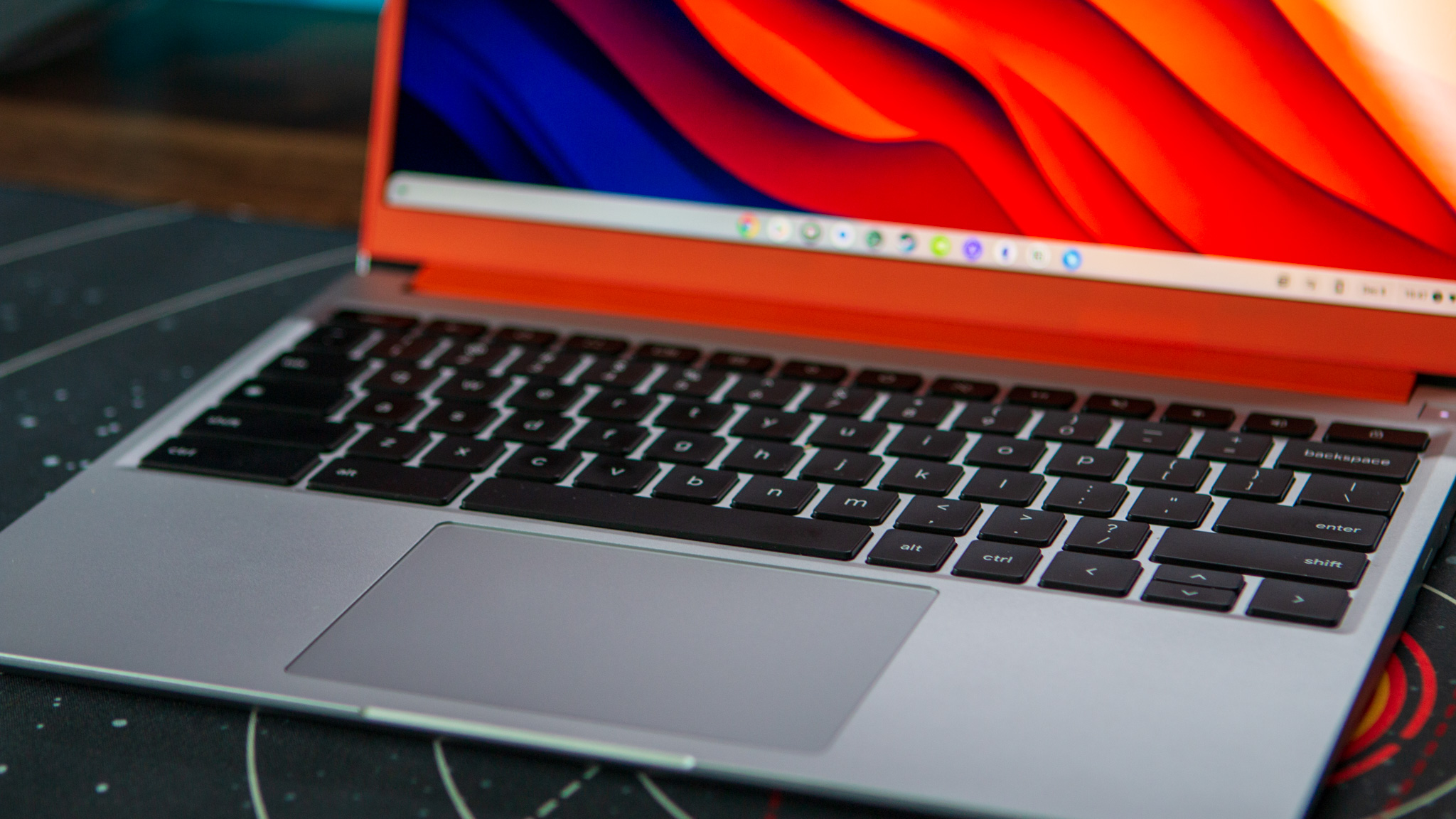
When it comes to the overall design of the Framework, the company's focus on sustainability goes far beyond modularity. All Framework Laptops are made from 50% post-consumer recycled aluminum, weighing in at around 2.8 pounds. It's cool to the touch and does a great job at dissipating heat, even when you find yourself playing games.
The keyboard deck itself is also made from aluminum, and typing on this reminded me of my old 2015 MacBook Pro. There's nothing special about it, but the buttons have plenty of travel, and even if you type harder than normal, bottoming out doesn't feel like you're jamming your fingertips into the laptop.
Framework Laptop Chromebook Edition: Performance is as expected
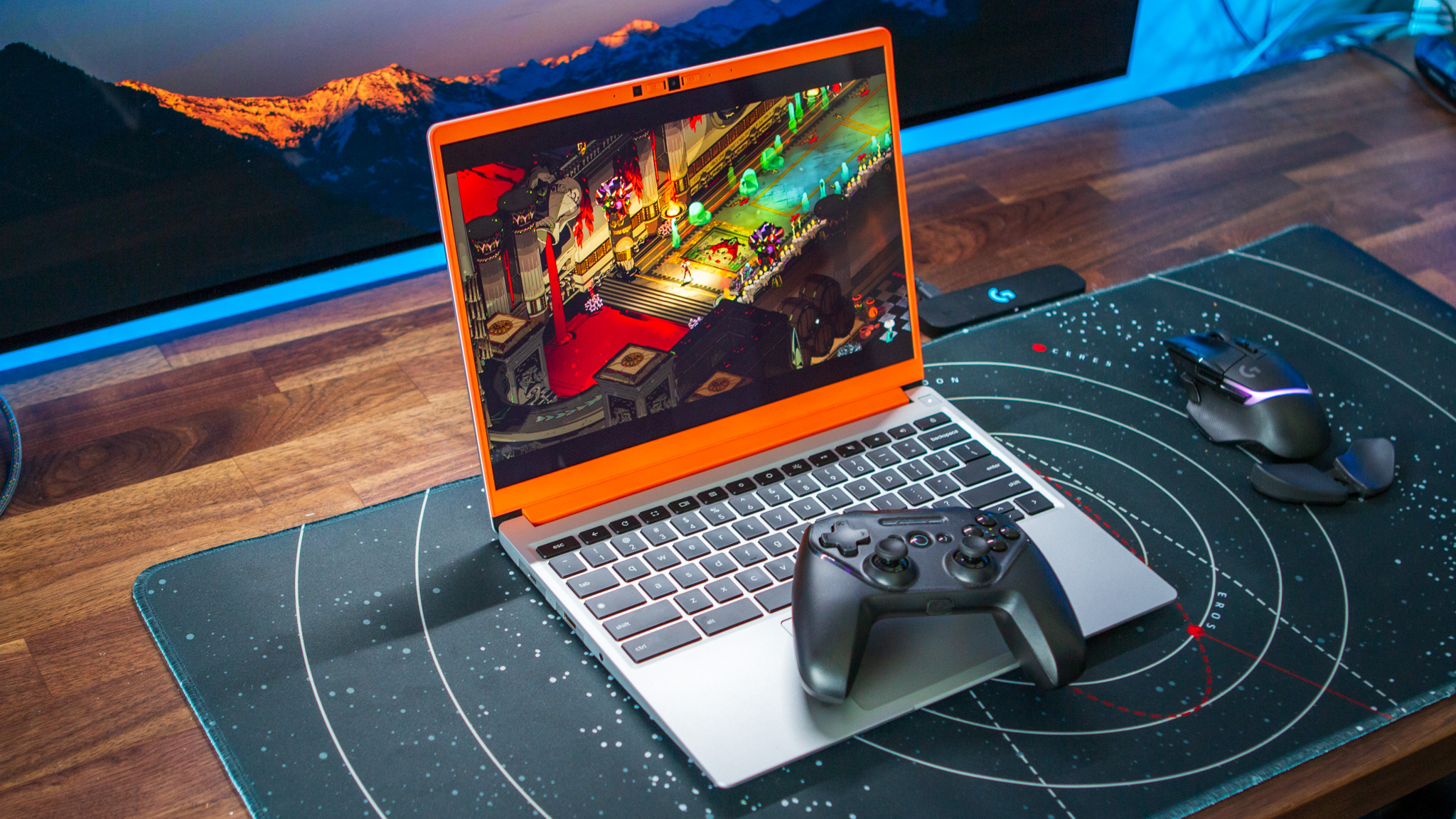
I'm not going to focus too much on the performance here, only because this Chromebook is currently offered in just a single configuration. Given that the idea of Framework's business premise is about sustainability and upgradability, plus the fact that the company's Linux and Windows laptops are available in multiple configurations, it's likely only a matter of time before other "mainboards" come to the Laptop Chromebook.
At the end of the day, this is still ChromeOS powered by a 12th Gen Intel chip, meaning that you'll be able to easily use multiple virtual desks, complete with a bunch of different tabs. And following Google's recent changes to Steam on ChromeOS, this device has joined the list of best gaming Chromebooks.
But if you're here for benchmarks, here are the results from the tests that we ran:
| Benchmark Test | Results |
|---|---|
| Wirple HTML5 3D Benchmark | 8368 |
| Octane 2.0 | 73572 |
| Speedometer 2.1 | 128 |
| Jetstream | 179.327 |
| MotionMark | 864.28 |
With the ability to install the Steam Beta on ChromeOS, I followed the steps and installed just a couple of games. Hades was first, as it's my current go-to for just lounging around and killing time. Paired with my SteelSeries controller, I didn't need to worry about configuring anything and just jumped right back into my last save.
Just for the sake of wanting to try it, I did manage to get Cyberpunk 2077 installed but ran into a few issues. Before tinkering around with the Proton compatibility layer, Cyberpunk started, but I was met with a black screen and couldn't actually do anything. Things actually got worse after enabling the compatibility layer, as the game wouldn't load at all. Of course, this isn't on Google's list of compatible games, which is more of a testament to growing pains with Steam on ChromeOS, which is still in Beta.
As I expected, the Framework handled everything else with ease, even after swapping out the included 256GB SSD for a 1TB one. However, there were a few times when the fans would sound like a jet engine, but that only really happened when I was installing Steam or had too many things going on at the same time.
Framework Laptop Chromebook Edition: Fingers crossed for future-proofing
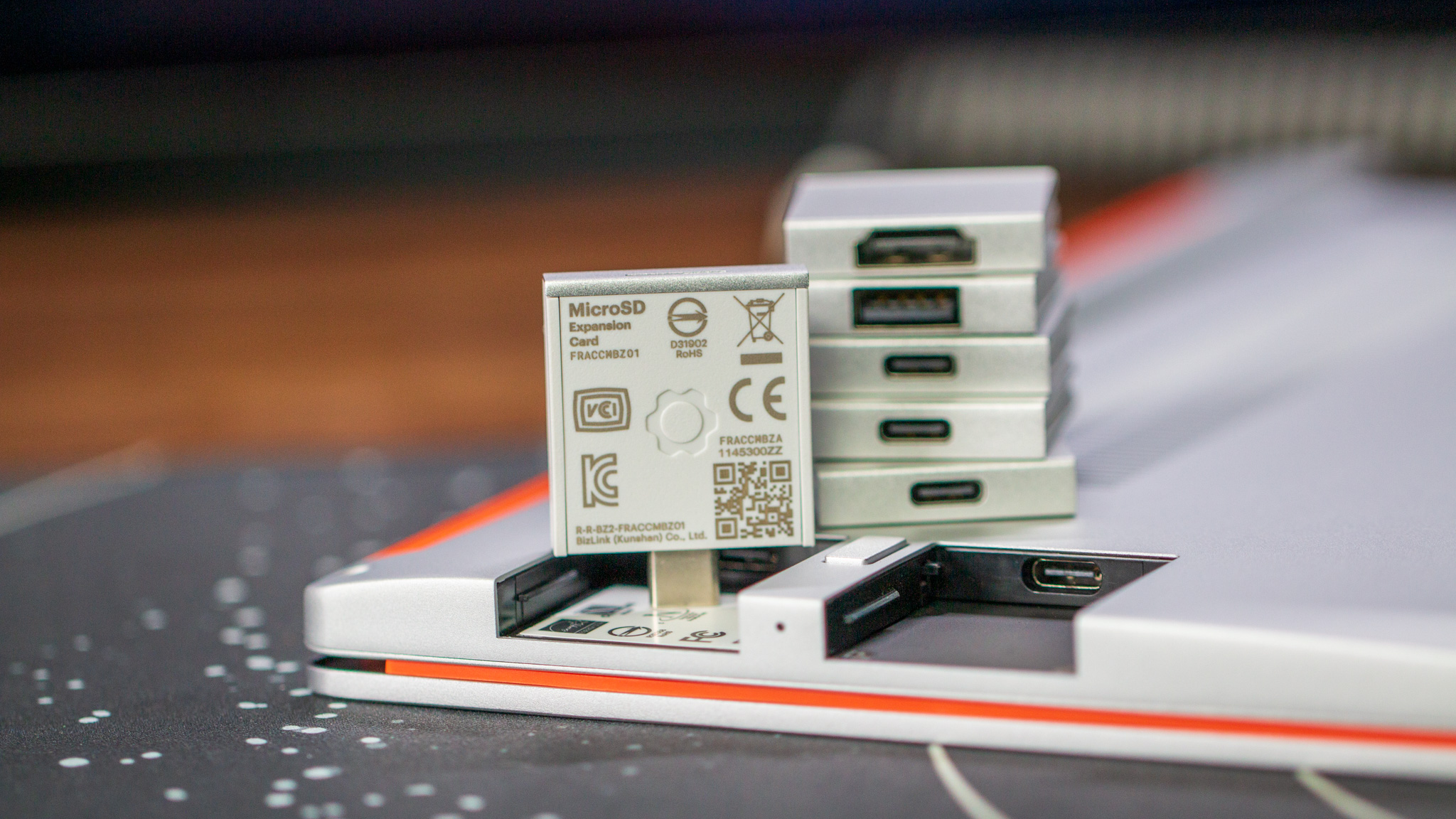
It's obvious from the start that this isn't your traditional Chromebook. Nor is it one that you would likely recommend to anyone in your life outside of hobbyists and tinkerers. But that's precisely why the Framework Laptop Chromebook Edition stands out so much.
Along with the various modules you select and the Framework itself, the company also includes a screwdriver in the box. This lets you dive right in before you even plug in any of the modules, let alone power it on for the first time.
Flip the Framework upside down, locate the five screws holding the bottom case together, and then pull it apart. Behold! A fully user-accessible Chromebook with parts that are interchangeable and replaceable. Each section of the Framework can be replaced, starting with the modules, and even including the "Mainboard."
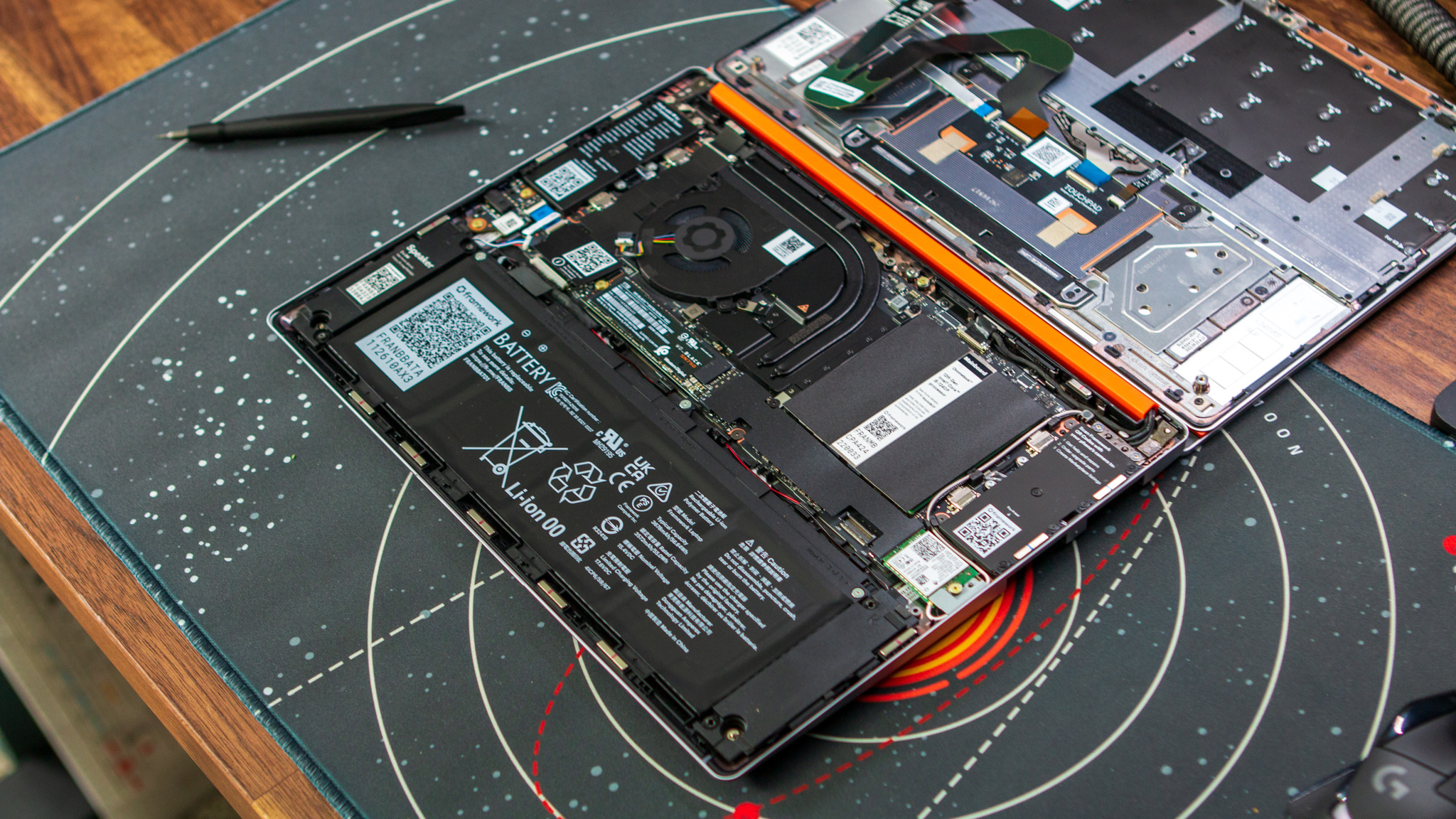
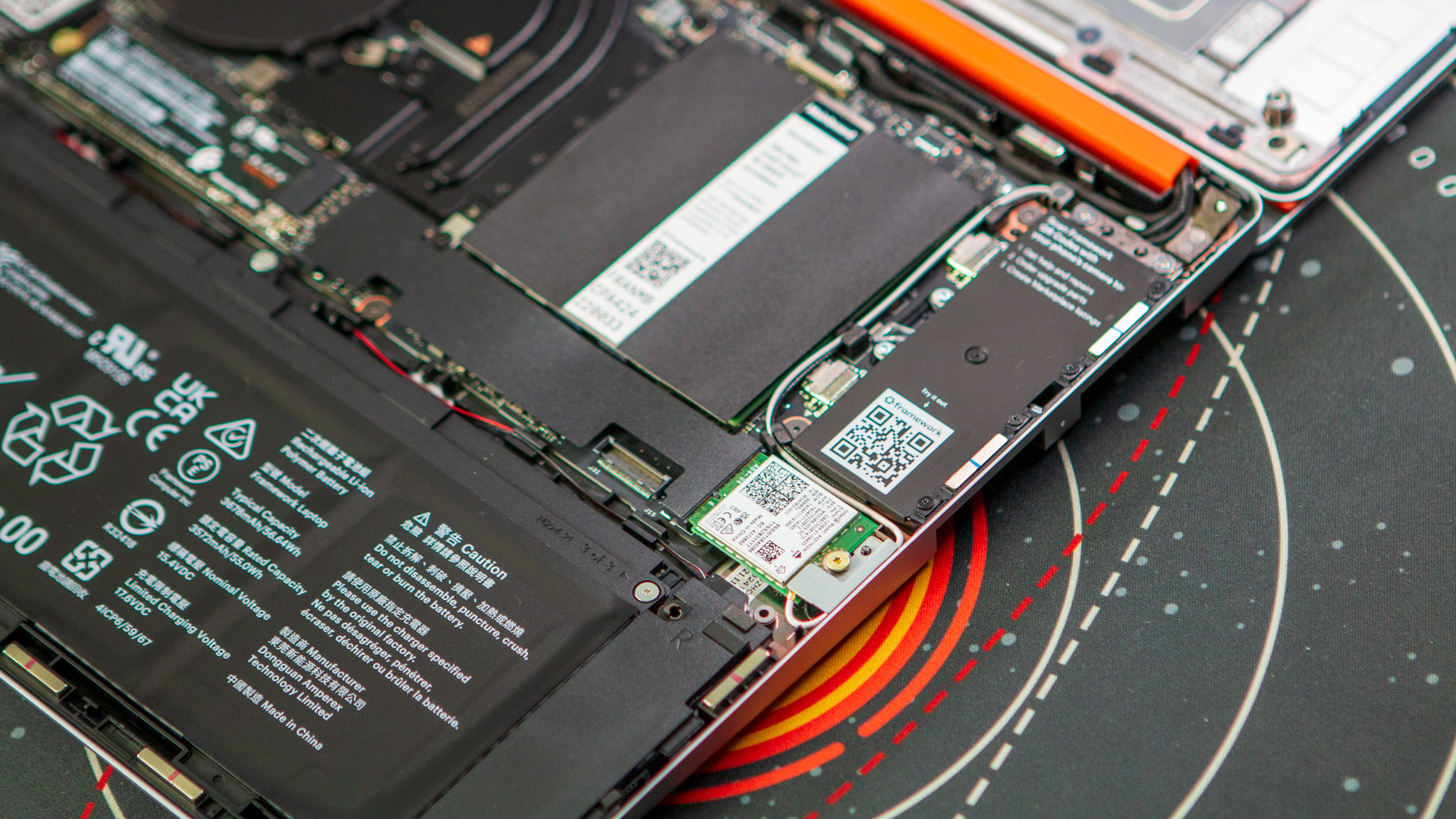
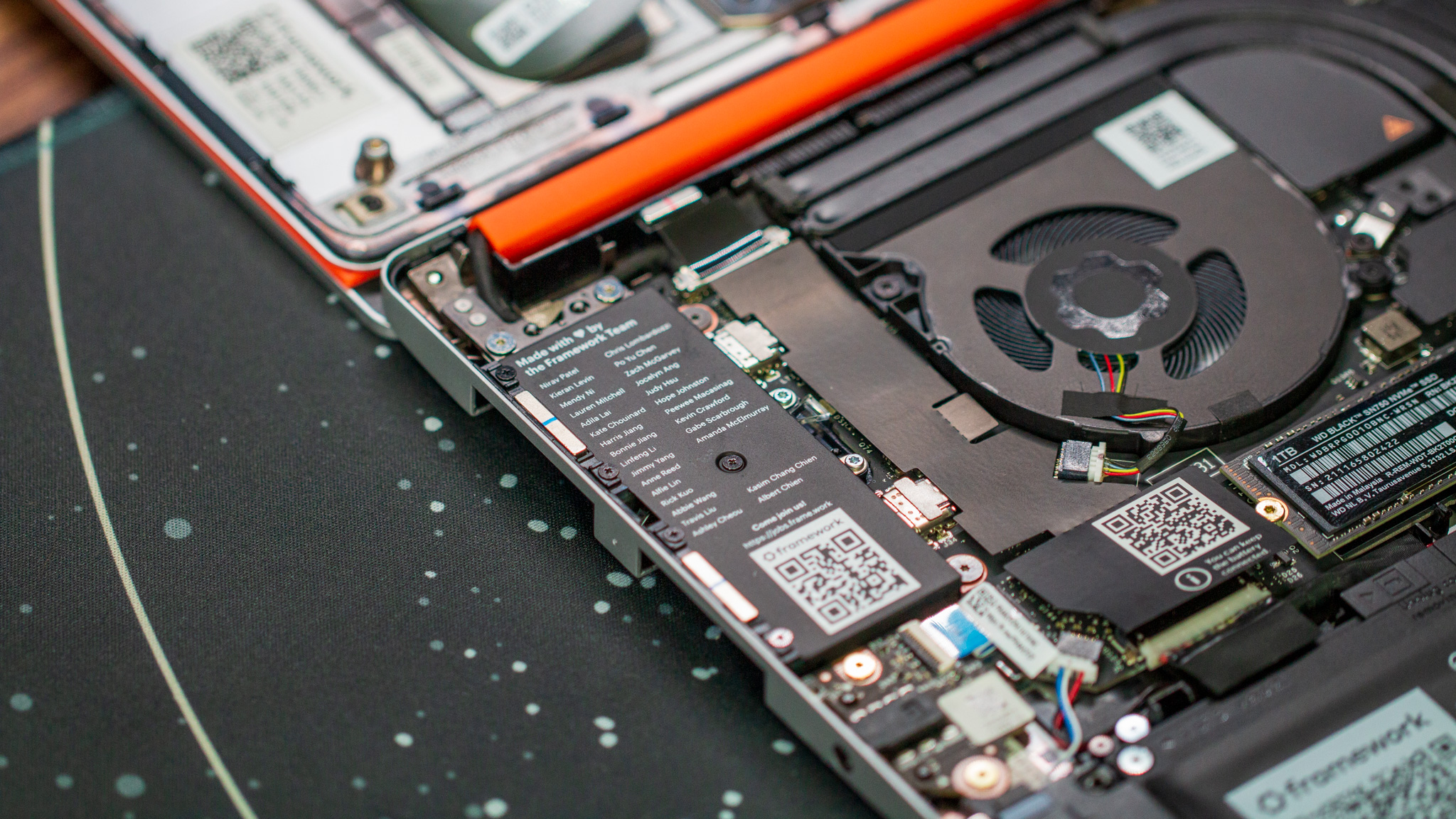
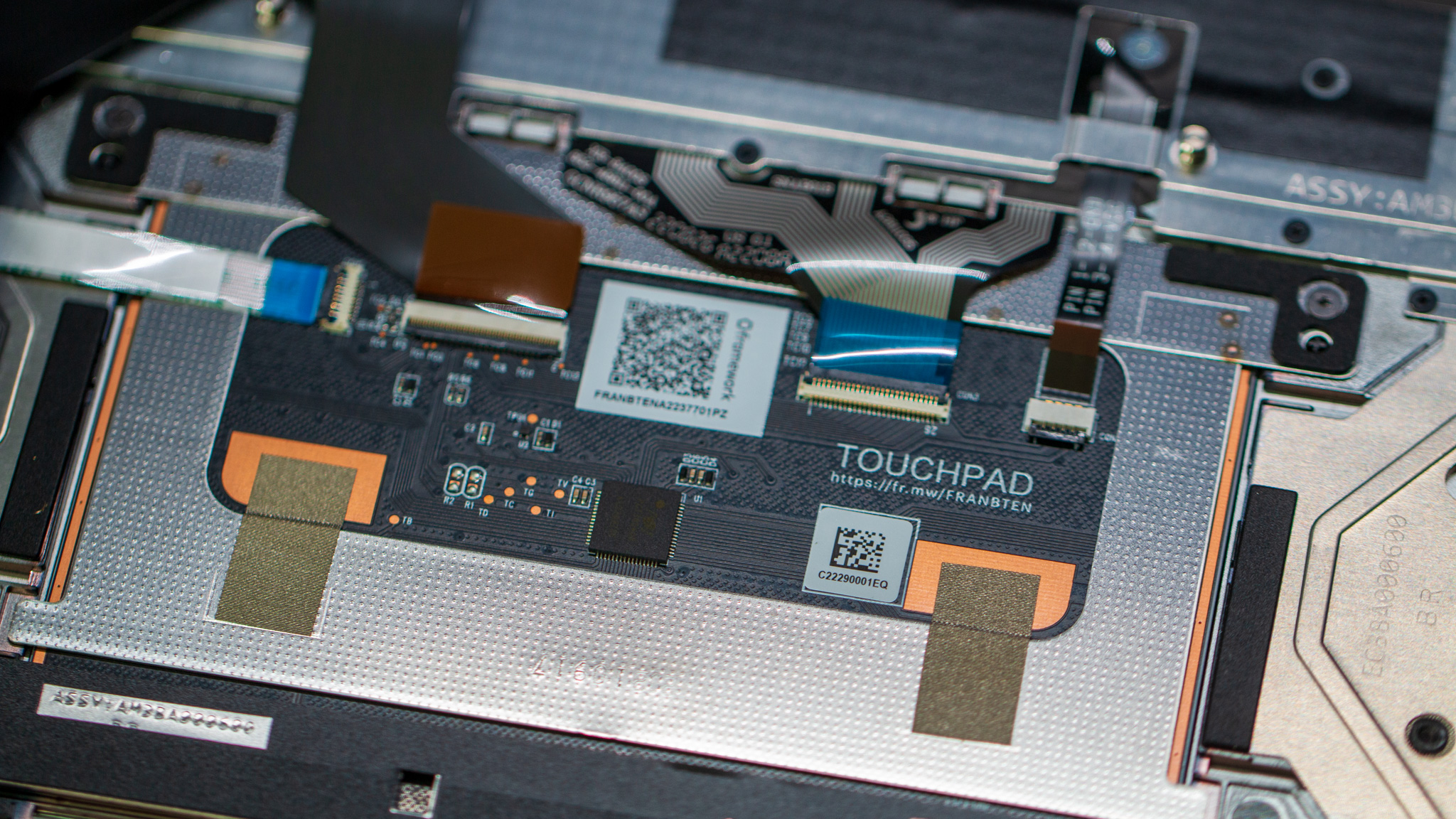
You can even go so far as to swap out the hinge for one that is a bit "heavier," if you want a sturdy hinge and don't care about opening your Chromebook with just one finger. At the time of this review, Framework also lists a few other parts that are "coming soon" such as the Wi-Fi 6E card, Power Button, Battery, and more.
If something, anything, stops working on your Framework Laptop Chromebook, you'll be able to order the appropriate part and install it yourself. And if you need a bit of help, there are QR codes that can be found on the different areas under the bottom casing to help you match up the parts and locate the appropriate installation/replacement instructions.
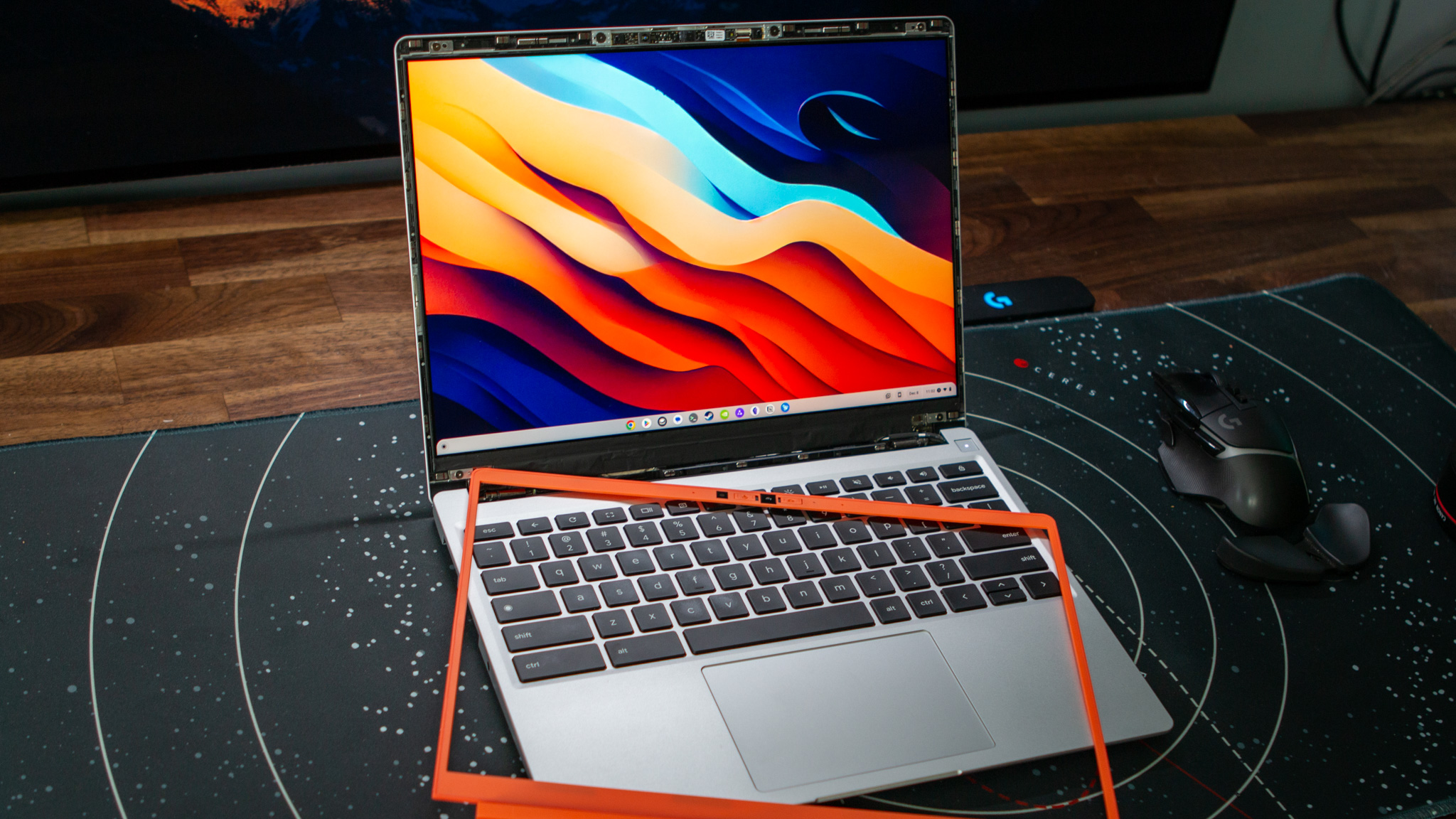
Hell, Framework even went so far as to make it possible for you to customize and swap out the bezel around the display. By default, the Framework ships with a Black Bezel, but there are also Gray and Orange options if you want to stand out from the crowd.
Sure, the HP Elite Dragonfly Chromebook is effing awesome with its sleek and convertible design, along with its haptic trackpad. But I don't want to know what kind of hoops I would have to jump through to replace anything on that device. Framework has also solved the potential frustration of trying to locate "authorized repair" shops if something goes wrong. I am the authorized repair shop, and Framework makes it easy to get the parts that I'll need.
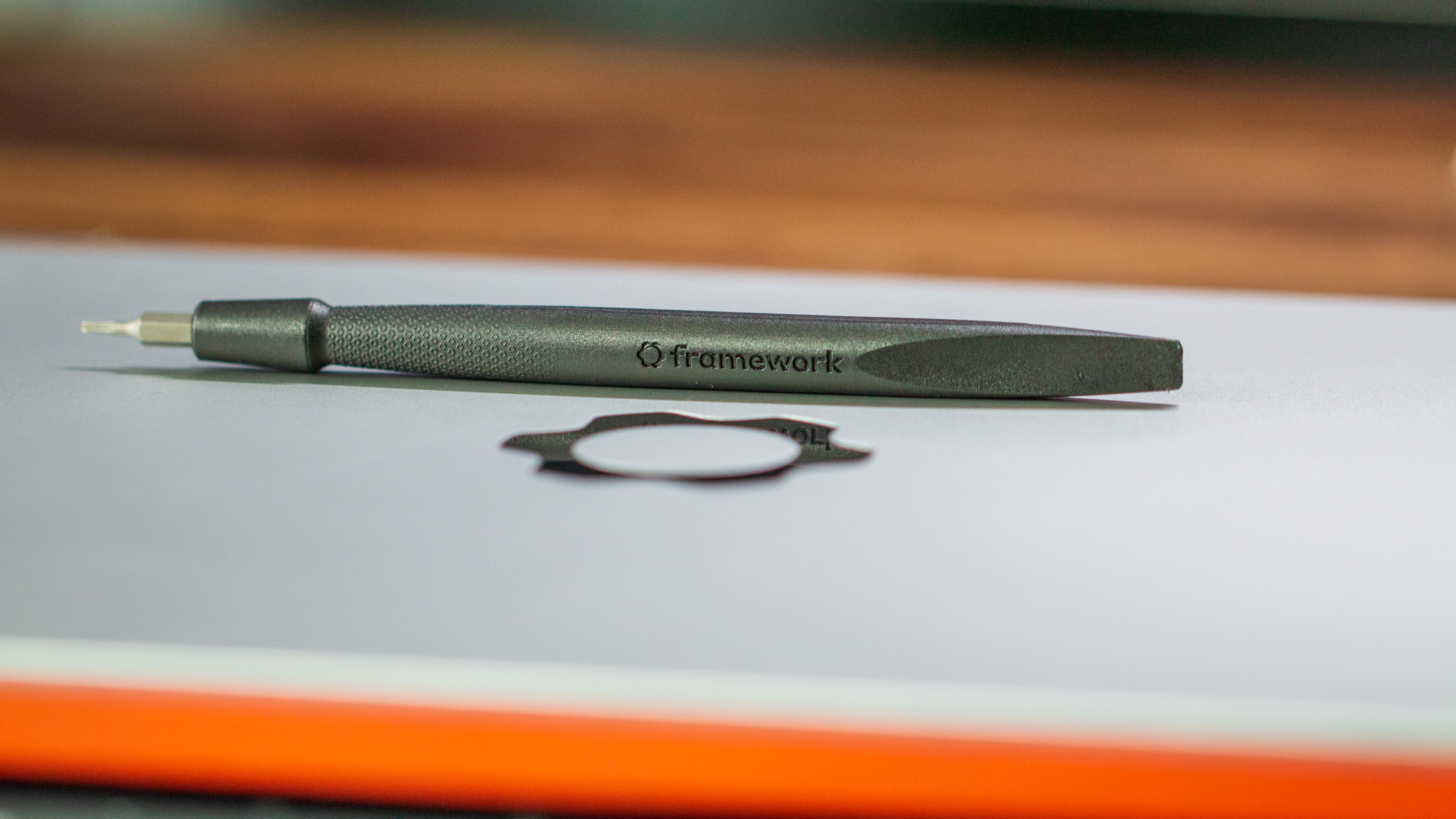
While I haven't tried it myself, I would even venture to guess that you could grab a mainboard for a Windows or Linux Framework Laptop and throw it in the Chromebook Edition. Or, just keep it as a spare, swapping between them whenever you want. Of course, I'm sure it's not this easy, but could you imagine?
Framework Laptop Chromebook Edition: The competition
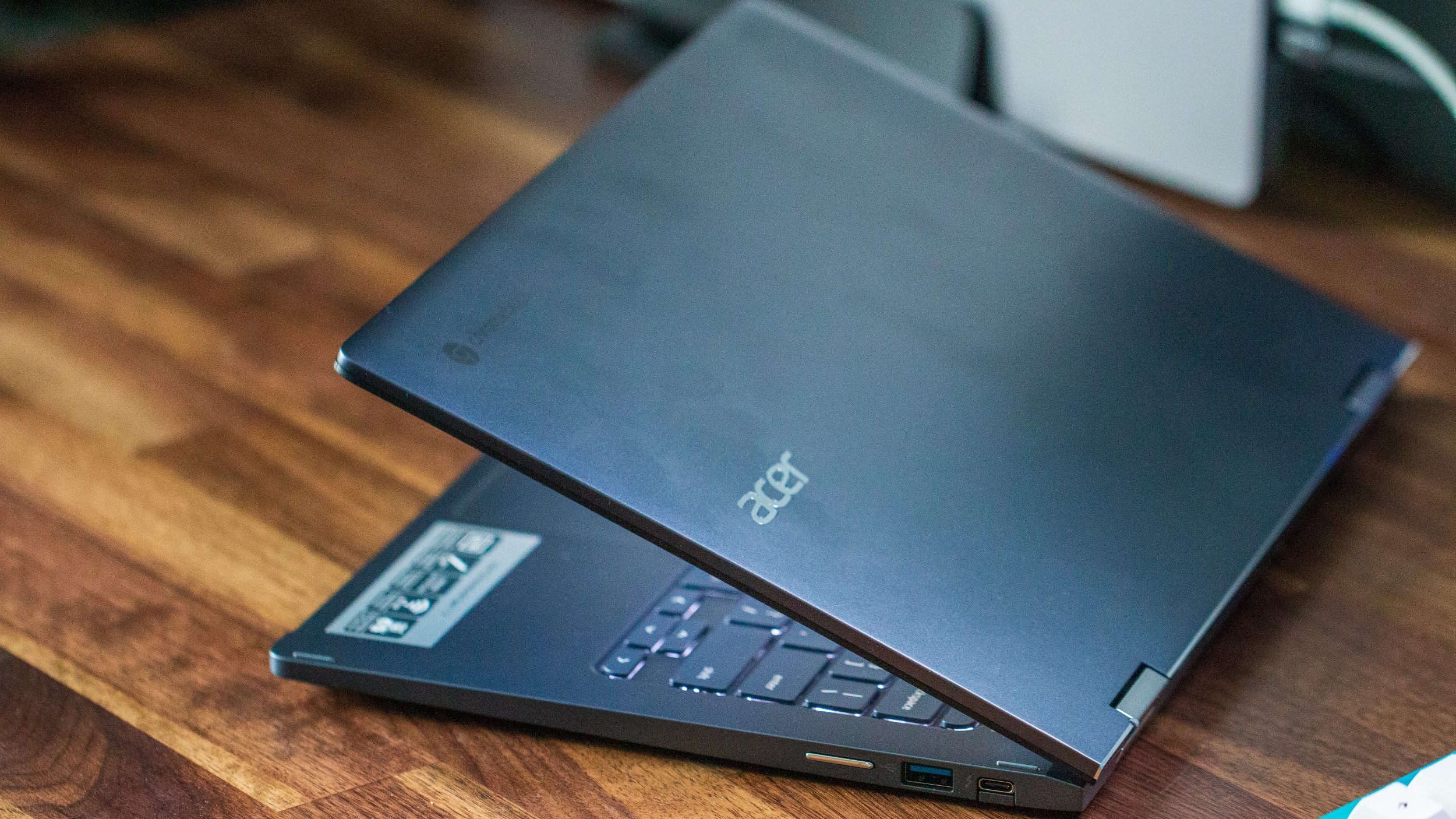
From a modularity standpoint, nothing on the market today matches up to what Framework is doing. There are some companies that make it easy for you to upgrade the RAM and storage, but that's it. If something breaks, or you want to upgrade the processor without buying a whole new laptop, then you're simply out of luck. This is a fringe-case scenario, sure, but Framework has now opened the door for conversations to begin.
If you're really trying to find out what Chromebooks can match up to the Framework, there are quite a few. We would be remiss if we didn't mention our current pick for the best Chromebook in the Acer Chromebook Spin 714. It features a convertible design, complete with a touchscreen display and even a garaged USI stylus. And while the Framework is a bit more powerful, the difference is negligible.
We've already mentioned it a few times, but the HP Elite Dragonfly Chromebook is another obvious competitor, if not only for the price. Google ditched the idea of a Pixelbook 2, leaving others to fill the void for premium Chromebooks. HP swiftly stepped in and has filled that role quite nicely, but you'll definitely need to fork out some dough. Even still, the Elite Dragonfly Chromebook is available in different configurations, but when it comes to future-proofing, be ready to dig out your wallet.
Framework Laptop Chromebook Edition: Should you buy it?
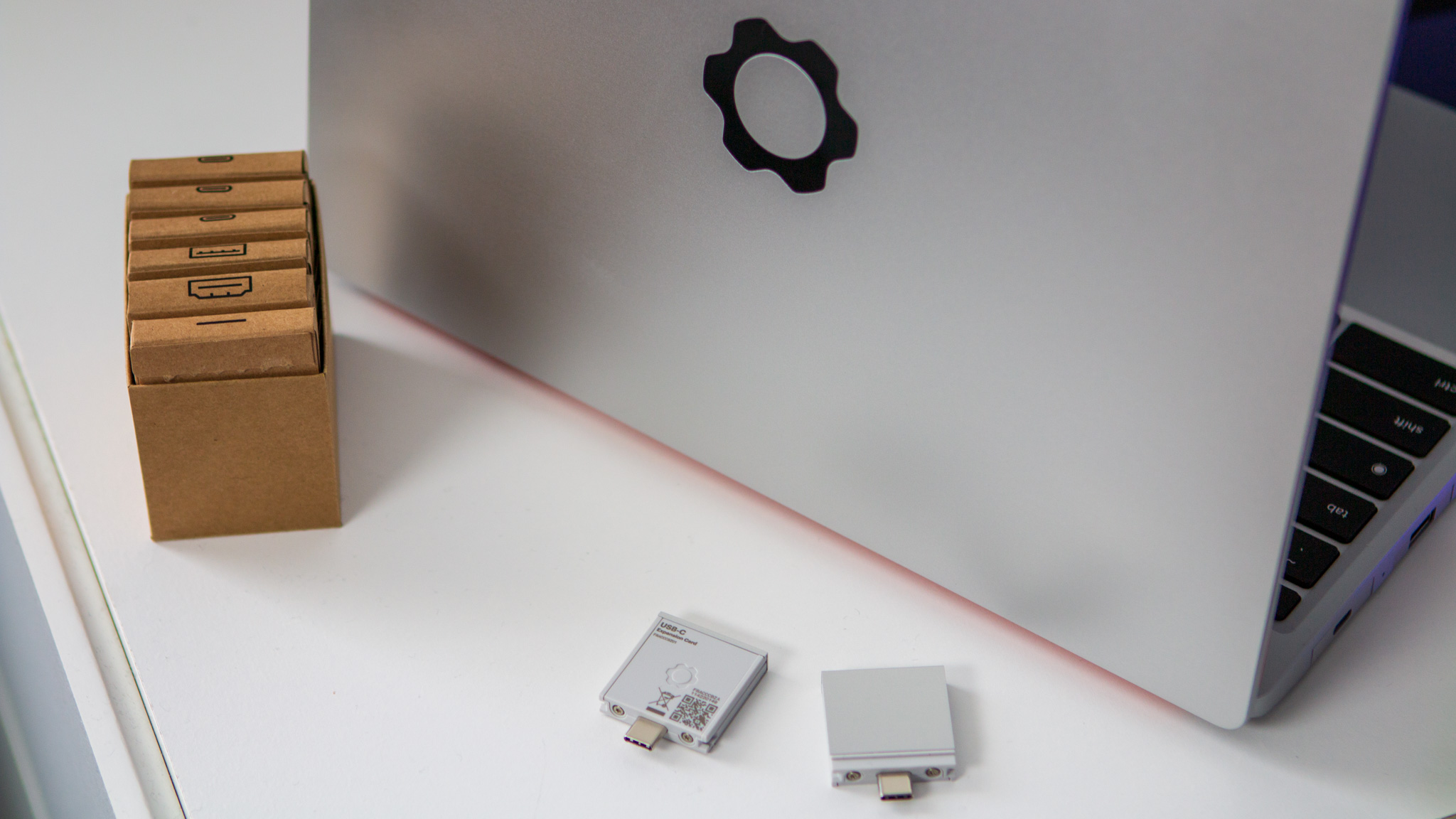
You should buy this if:
- You like to upgrade or tinker with your hardware.
- You want a fully-modular Chromebook.
- You want to support a company that is bucking the trend.
- You care about sustainability.
You shouldn't buy this if:
- You need a Chromebook with a touchscreen.
- You want a convertible laptop.
- You want a Chromebook with a fingerprint scanner.
- You're on a budget
I'm not going to beat around the bush here. There are only a few products over the past few years that have made me genuinely this excited. Foldable phones are one, the Steam Deck is another, and now, it's the Framework Laptop. I never thought we would see the day when a startup company would be able to release a product such as this, let alone one that would still be around a few years later.
As I noted before, there's not much to write home about when it comes to the performance, as it will perform just as well as similarly-spec'ed Chromebooks and laptops. But that's not the point of Framework. Instead, what you get is a Chromebook that gives you access to the ports that you need, an upgrade path that doesn't include buying another laptop, and is a tinkerer's dream.
The $999 is a tough pill to swallow, especially for a Chromebook. But that's a price that I'm willing to pay for a device that I can upgrade as I see fit, even if that means paying for another mainboard just to go from a Chromebook to a Windows laptop. And in a world where companies pay a lot of lip service about sustainability, I love seeing a company actually "walk the walk."
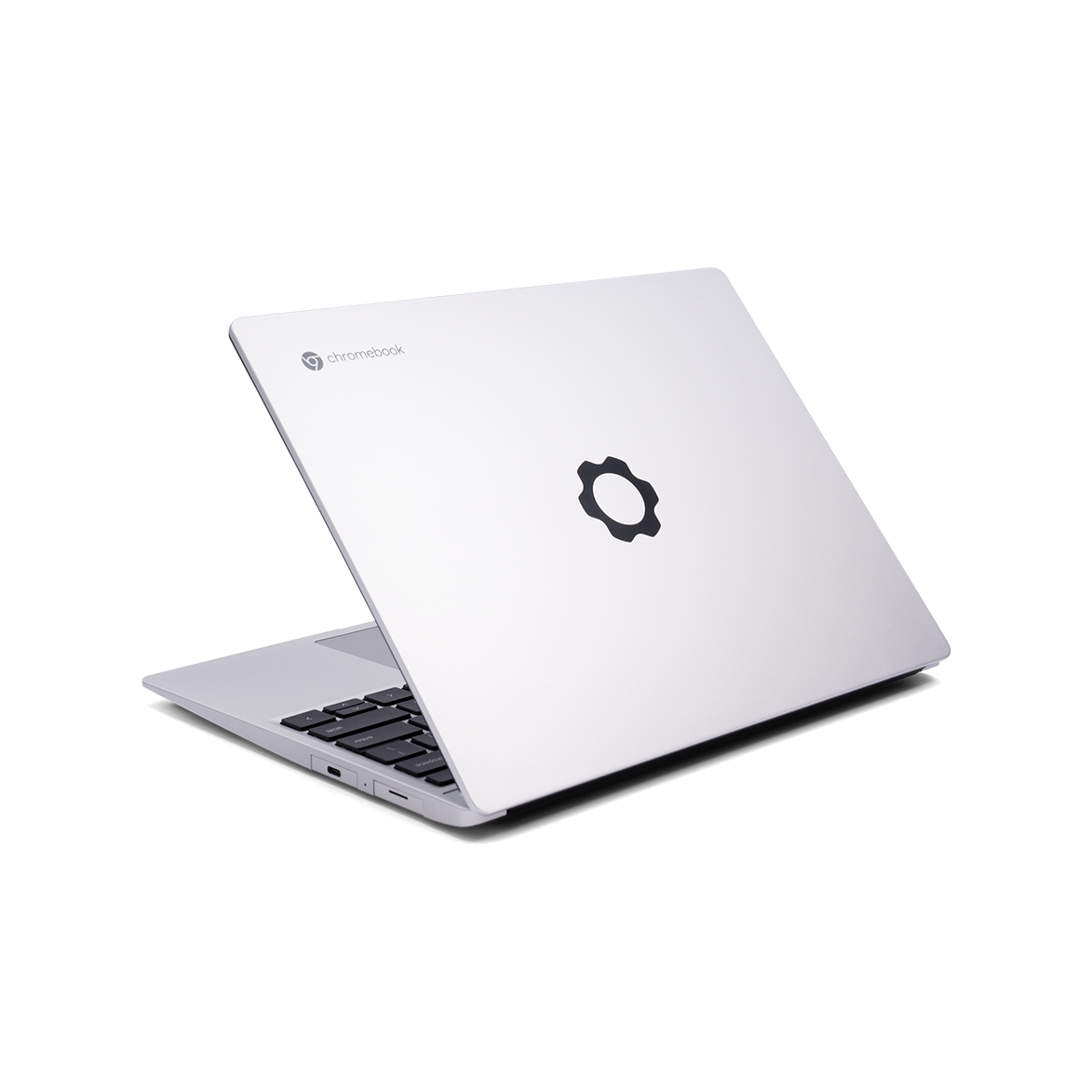
The start of something great
The Framework Laptop Chromebook Edition may not look like much, but the possibilities are truly endless. This is the only Chromebook available today that offers a "path to upgrade" in the future, while making the perfect device if you like to tinker around with the internals.

Andrew Myrick is a Senior Editor at Android Central. He enjoys everything to do with technology, including tablets, smartphones, and everything in between. Perhaps his favorite past-time is collecting different headphones, even if they all end up in the same drawer.
